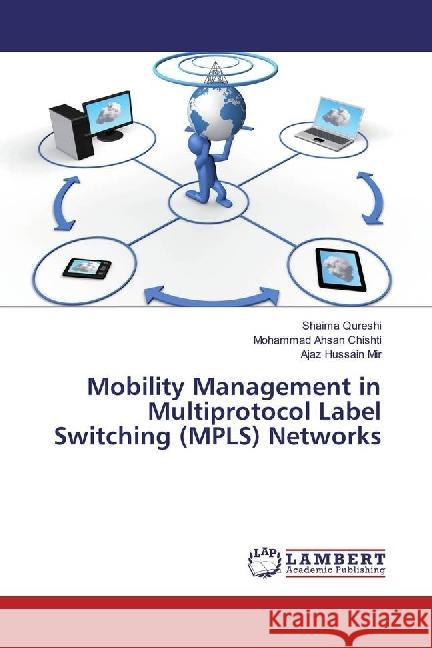Mobility Management in Multiprotocol Label Switching (MPLS) Networks » książka
Mobility Management in Multiprotocol Label Switching (MPLS) Networks
ISBN-13: 9786202071703 / Angielski / Miękka / 2017 / 128 str.
Mobile Internet Protocol (MIP) takes care of the seamless movement of mobile devices. A significant problem in mobility is packet drop and delay during handover. While many of MIP protocols address the fast handover issues with a good degree of success but they lack Quality of Service (QoS) capability. As such QoS is required to prioritize traffic and reserve resources so that a certain amount of performance guarantee can be achieved for a flow. Multi-Protocol Label Switching (MPLS) has been developed to incorporate QoS in networks. MPLS plays an important role in proficient real time data communication. Since voice and video traffic is increasingly being used especially in mobile handheld devices, a significant numbers of Internet Service Providers and network operators are migrating towards MPLS as the transport option. MPLS based mobility enabled networks have been proposed to improve delays as well as enhance the performance of real time traffic transmission. Experimental evaluations of Mobility in MPLS framework show considerable improvement in performance of various parameters.











